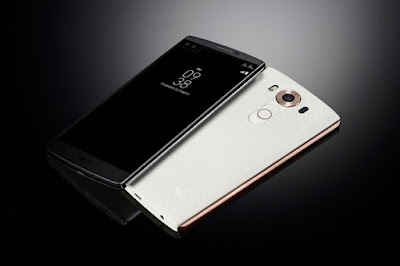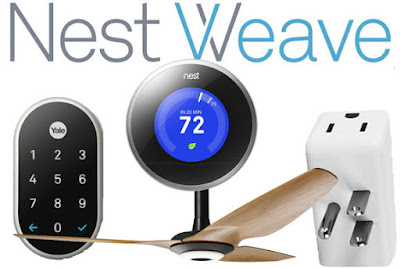 |
| The LG V10 as A photographer's dream |
LG introduced an upgrade to its flagship phone line, the LG G4.
One of the aspects that LG pushed in order to distinguish its phone
from the other high-end devices now crowding the market was the ability
to take top-notch photos.
Twenty-five years of successful consulting gigs left Malcolm Greene with a list of accomplishments a
In his review, JR Raphael took a close look
at how well the LG G4 performed as a
camera, and he found that while,
on the whole, the LG produced some very good photographers, the results
weren't as consistent as he would have liked.
LG has just doubled
down on its push to be the company known for its photographic know-how;
in a presentation today in New York it showed off its new V10
smartphone.
This is a very interesting device. The phone features
a 57-in. 2560 x 1440 display along with a secondary 2.1-in. 150 x 1040
display at the top of the phone that offers notifications and messages.
(Think the Samsung Galaxy S6 Edge+ without the curve.)
It
also comes with 4GB RAM and 64GB of storage (with a micro SD slot for
up to 2TB of increased space), three microphones for noise reduction and
better audio, and a removable 3,000mAh battery look like
Power Bank (which means that the
back of the phone doesn't feel quite as snazzy as most high-end phones,
but hey! It's removable!).
But
what LG spent the most time on during its presentation was the camera
(which, apparently, was used in creating the video used in its
introduction). This phone has two -- count 'em, two -- 5-megapixel
front-facing cameras, one with an 80-degree field of view and the other
with a wider 120-degree field. You can decide which you want to use, or
use both simultaneously along with the 16-megapixel rear-facing camera
to produce a three-in-one photo LG calls Multiview.
There were a
number of other photography-related updates, including increased
stabilization for video (which LG calls Steady Record), a plethora of
manual controls, and the ability to adjust the color or the lighting
while recording.
The
question is: How much of a difference will this make to potential
smartphone buyers? It's really great that we can now have cameras with
us everywhere we go -- the constant presence of smartphone cameras have
changed our social and political landscape, as people record events that
might otherwise have gone unnoticed or disbelieved.
But
this is more than a better way to record your kids, your co-workers, or
that demonstration happening down the street. On the one hand, the V10
has those two front-facing cameras (something that is strictly for the
selfie crowd); on the other, it has all those manual controls for,
presumably, the person who is really well acquainted with the ins and
outs of photography.
I can't speak for selfie enthusiasts -- who
may indeed like choosing from two separate cameras -- but I am
acquainted with several photographers (amateur and professional). And my
impression is that they aren't particularly looking for phone cameras
with software that offers the same complexity as their "real" cameras.
In fact, they all tend to carry larger cameras for serious work and
smaller, pocketable cameras for quick snaps.
It's possible that, given a high-enough quality, a photographer would
switch to using a smartphone for the latter use -- in fact, I suspect
many already have -- but I'd be interested to know whether they really
want, or need, the fine controls that LG is adding. (After all, isn't
that what Photoshop is for?)
But who knows? LG hasn't yet offered
either a ship date or a price for the U.S. version of the V10. Perhaps
this multi-talented phone -- with its multiviews and other features --
will indeed strike a nerve with the market.
Cr.
Computer World ,
Synergy | Google+
,
doly news
,
bangkok21st
,






